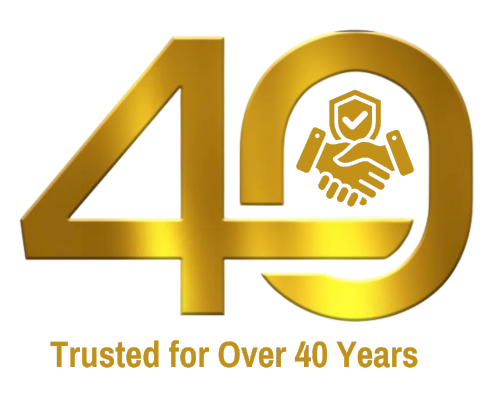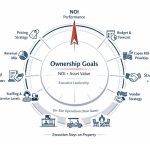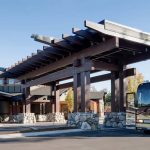SEO for Campgrounds: How to Get Found Online & Increase Direct Bookings

A well-built website is a must for any modern campground, but having a website isn’t enough—people need to be able to find it. That’s where Search Engine Optimization (SEO) comes in. If your campground’s website isn’t ranking well on Google, you’re missing out on potential guests who are searching for places to stay in your area.
For years, campgrounds relied on third-party booking platforms and word of mouth to fill sites. But with more travelers turning to Google to plan their trips, having an SEO-first website is one of the best ways to drive direct bookings—saving you money on third-party commissions and increasing your overall revenue.
Let’s break down how SEO works for campgrounds and what you can do to improve your search rankings, increase website traffic, and turn more visitors into guests.
1. Start with an SEO-First Website
Your website is the foundation of your online presence, and if it’s not built with SEO in mind, you’re already at a disadvantage.
Here’s what an SEO-friendly campground website should have:
- Mobile-friendly design – More than half of all searches happen on mobile devices, and Google ranks mobile-friendly sites higher.
- Fast loading speed – If your site takes more than three seconds to load, visitors (and search engines) will lose interest.
- Clear navigation – Guests should be able to find rates, amenities, and booking options easily.
- Secure connection (HTTPS) – Google prioritizes secure websites, and users trust them more.
If your website is slow, outdated, or hard to navigate, SEO won’t help—people will click away before they even book. Investing in a well-built, SEO-first website from the start is the best way to set your campground up for long-term success.
2. Use the Right Keywords to Get Found
Google’s goal is to match searchers with the most relevant results. The way you tell Google what your campground is about is by using the right keywords.
Think about what potential guests are typing into Google when they’re looking for a place to stay. Some common campground-related search terms include:
- “RV parks near [your location]”
- “Best campgrounds in [your state]”
- “Pet-friendly campgrounds near me”
- “Glamping resorts in [your region]”
These are called long-tail keywords—phrases that reflect exactly what someone is searching for. The more specific your keywords, the better chance you have of ranking.
How to Find the Best Keywords for Your Campground
- Use Google’s “Autocomplete” feature – Start typing a phrase like “campgrounds near” and see what Google suggests.
- Check Google’s “People Also Ask” section – This shows common questions people search for.
- Use free tools like Ubersuggest or Google Keyword Planner – These show search volume and keyword difficulty.
Once you’ve identified the best keywords for your campground, use them naturally throughout your site, including in page titles, headings, and descriptions.
3. Optimize Your Google Business Profile
If you want to show up in local search results, your Google Business Profile (GBP) is just as important as your website.
Your GBP listing is what appears when someone searches for your campground on Google Maps or in “near me” searches. To optimize it:
- Claim and verify your business at google.com/business.
- Make sure your name, address, and phone number (NAP) are correct and match your website.
- Add high-quality photos of your campground, amenities, and campsites.
- Encourage guest reviews—campgrounds with more positive reviews rank higher.
- Regularly update your profile with events, promotions, or changes in hours.
A strong Google Business Profile helps you rank higher in local searches, putting you in front of more potential campers.
4. Write Blog Content to Attract More Visitors
Google rewards websites that publish fresh, valuable content. That’s why a blog can be a game-changer for SEO.
By writing helpful, keyword-rich articles, you can attract potential guests before they’re even ready to book. Here are some blog ideas:
- “Best Hiking Trails Near [Your Campground]”
- “How to Plan the Perfect Camping Trip in [Your State]”
- “RV Packing Checklist for First-Time Campers”
- “Glamping vs. Traditional Camping: What’s Right for You?”
Each blog post gives Google more content to index, increasing your chances of ranking for different search terms.
5. Build Backlinks to Increase Your Authority
Backlinks are links from other websites to yours, and they’re one of the strongest ranking factors in SEO. When high-quality websites link to your campground, Google sees your site as more trustworthy.
How to earn backlinks:
- Get listed on travel and tourism sites – State tourism boards, local chamber of commerce websites, and campground directories often allow free or paid listings.
- Partner with local attractions – Ask nearby businesses, parks, or tourism boards to link to your site.
- Get featured in blogs and online articles – Reach out to travel bloggers who cover camping and outdoor destinations.
Backlinks take time to build, but they improve your domain authority and help you rank higher in search results.
6. Focus on Direct Bookings to Reduce Costs
While third-party booking platforms (like Hipcamp or The Dyrt) can drive reservations, they also take a cut of your revenue. An effective SEO strategy helps drive direct bookings through your website, so you keep more of your profits.
To increase direct bookings:
- Make your booking process simple – A confusing or outdated reservation system can turn potential guests away.
- Use clear calls-to-action (CTAs) – Buttons like “Book Now” should be easy to find on every page.
- Offer exclusive website discounts – Reward guests who book direct with a small discount or perks like free firewood.
The more direct bookings you get, the less you have to rely on third-party sites.
Final Thoughts: SEO is a Long-Term Investment
SEO isn’t an overnight fix, but when done right, it’s one of the most effective ways to grow your campground’s visibility and increase bookings. A well-optimized, SEO-friendly website helps you rank higher, attract the right audience, and convert visitors into paying guests.
At Campground Consulting Group, we help campgrounds optimize their websites, improve search rankings, and develop long-term marketing strategies that drive direct bookings.
Want to Improve Your Campground’s SEO? Let’s Talk.
If you’re ready to get your campground found online and increase your revenue, we can help.
Contact us today for an SEO consultation.
[Insert Contact Information]
A great campground deserves to be seen. Let’s make sure yours is at the top of the search results.










